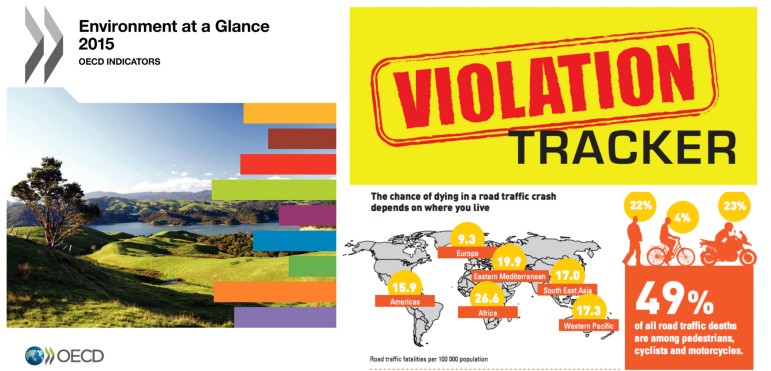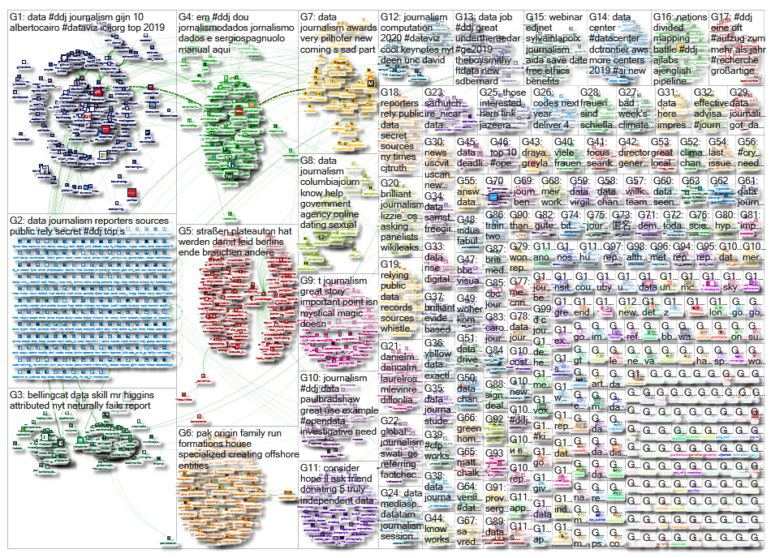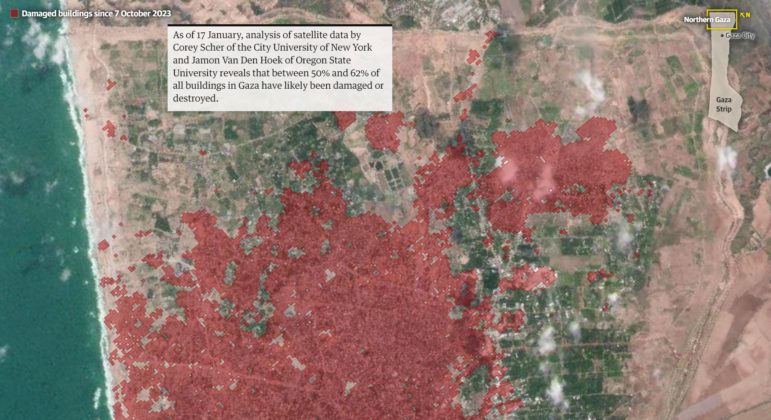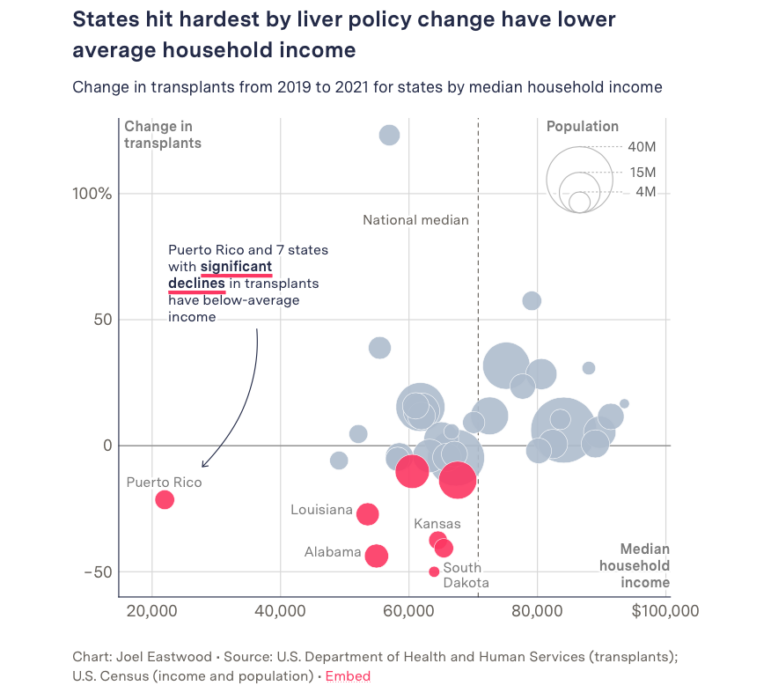

GIJN’s Data Journalism Top 10: Air Pollution, China Cables, #29Leaks, Predators on Dating Apps
What’s the global data journalism community tweeting about this week? Our NodeXL #ddj mapping from December 2 to 8 finds The New York Times visualizing particle pollution in augmented reality; various media outlets investigating #29Leaks, a global reporting project based on a massive data leak from an offshore services provider; Columbia Journalism Investigations and ProPublica digging into the problem of sexual predators lurking in dating apps; and The International Consortium of Investigative Journalists breaking down the significance of the China Cables.
How Polluted is Your City’s Air?
Particle pollution may be too small for the eye to see, but in high concentrations it can cast a haze in the sky and wreak havoc on human health. The New York Times visualized the damaging, tiny particles in augmented reality and created an interactive for readers to compare the level of air pollution in different cities. Data visualization expert Alberto Cairo breaks down what this project gets right.
#29Leaks
#29Leaks is a collaborative reporting project based on 131GB worth of data leaked from a breach at Formations House, an offshore company formation agent. Journalists from more than 20 media outlets in 18 countries dug through millions of the leaked emails, faxes, and phone calls to piece together Formation House’s global reach and the criminal activities of the companies it had registered. The Organized Crime and Corruption Reporting Project (OCCRP) has a video explainer of the scheme here.
Sexual Assault and Dating Apps
Columbia Journalism Investigations and ProPublica analyzed more than 150 incidents of sexual assault involving dating apps, culled from a decade of news reports, civil lawsuits, and criminal records. Their findings revealed that Match Group, which owns most major online dating services, screens for sexual predators on Match.com — but not on Tinder, OkCupid, or PlentyofFish. Now, the reporters are asking readers to contribute their personal stories.
Mapping Canada’s Pipeline Battle
Canada’s plan to extend the Trans Mountain oil pipeline from Edmonton to the country’s west coast has been subject to much debate. Environmentalists and Indigenous groups say they weren’t adequately consulted on the project. Al Jazeera traveled more than 2,000 km along the pipeline route to speak to Indigenous and community leaders as well as legal experts.
All You Need to Know: China Cables
The China Cables investigation is based on classified Chinese government directives that provided operational plans for internment camps and orders for carrying out mass detentions of Uighurs and other ethnic minorities living in Xinjiang, China. The International Consortium of Investigative Journalists explains who is involved and the significance of the leaked documents.
Mapping Spatial Inequality
The Financial Times mapped inequality in the United Kingdom, using different colors to indicate different socioeconomic classes. It also examined how social researcher and reformer Charles Booth’s 19th century maps of poverty are being updated for the 21st century.
The Future of Data Journalism Awards
Wondering about the fate of the Data Journalism Awards after the closure of the Global Editors Network? Nieman Lab finds out that former jury members Reginald Chua of Reuters and Aron Pilhofer of Temple University are working with a few others to develop a new group and a recognition process independent of the original awards. They welcome suggestions for a name for the new version.
https://twitter.com/pilhofer/status/1202357654779285505
Mining Social Media
The book Mining Social Media: Finding Stories by Lam Thuy Vo was just released last week. It covers how and where to find data from the social web and the tools necessary to process, explore, and analyze it.
The 100th Edition: Fair Warning Newsletter
Fair Warning — a newsletter by data journalist Sophie Warnes — has reached its 100th edition. Subscribe here if you’re interested in data journalism, data visualization, and storytelling. The links that Warnes has curated for over two-and-a-half years are now searchable in an archive, inspired by Jeremy Singer-Vine’s Data is Plural archive.
https://twitter.com/raju/status/1203677569285021696
Rental Burden in Germany
Rising rental rates are burdening many people in Germany, particularly low income earners. Low wage workers who live in comparatively cheap apartments need to fork out 31% of their salary for rent compared to higher income earners at 22%, even when the latter tends to live in more expensive homes. Zeit Online explores the rental market problem using reports, data analysis, and interviews.
Thanks again to Marc Smith of Connected Action for gathering the links and graphing them. The Top Ten #ddj list is curated weekly.
 Eunice Au is GIJN’s program coordinator. Previously, she was a Malaysia correspondent for Singapore’s The Straits Times, and a journalist at the New Straits Times. She has also written for The Sun, Malaysian Today, and Madam Chair.
Eunice Au is GIJN’s program coordinator. Previously, she was a Malaysia correspondent for Singapore’s The Straits Times, and a journalist at the New Straits Times. She has also written for The Sun, Malaysian Today, and Madam Chair.










